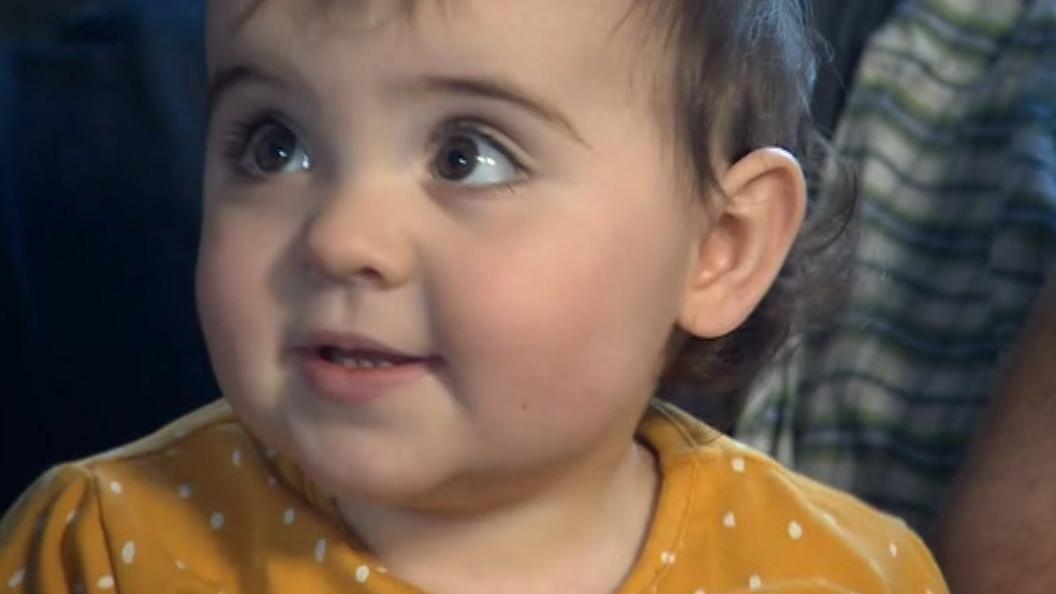Big rise in numbers dying after West Midlands ambulance delays
- Published
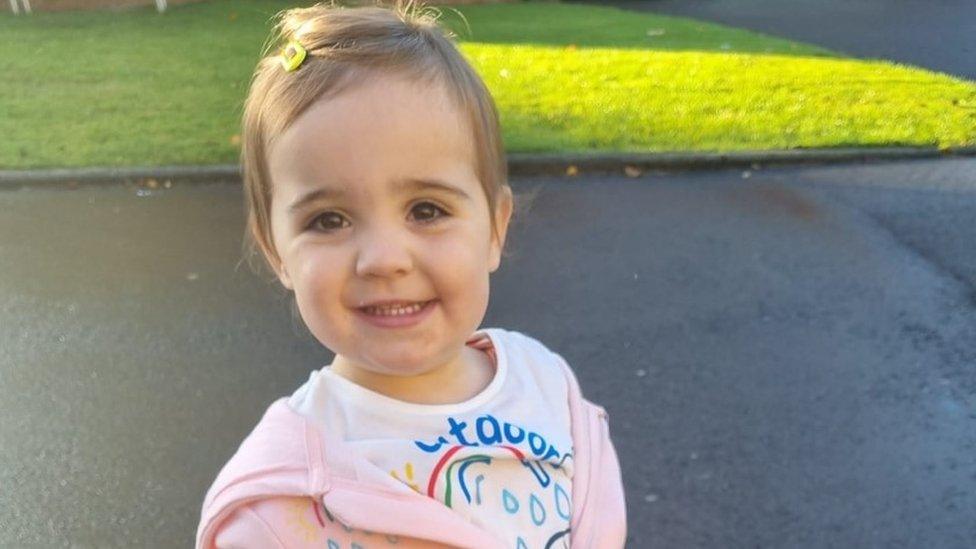
Myla had a seizure and had to wait more than half an hour for an ambulance. She has since made a good recovery
The number of people in the West Midlands who died after an ambulance delay has risen significantly.
Figures uncovered by a freedom of information request from BBC Newsnight showed yearly numbers rose from one in 2020 to 37 up until September 2022.
Patients and campaigners have called for urgent improvements and changes.
West Midlands Ambulance Service said it was working hard to prevent delays, but depended on hospitals admitting patients quickly to free up crews.
During a single day, Newsnight journalists monitored ambulances at five hospitals covered by West Midlands Ambulance Service.
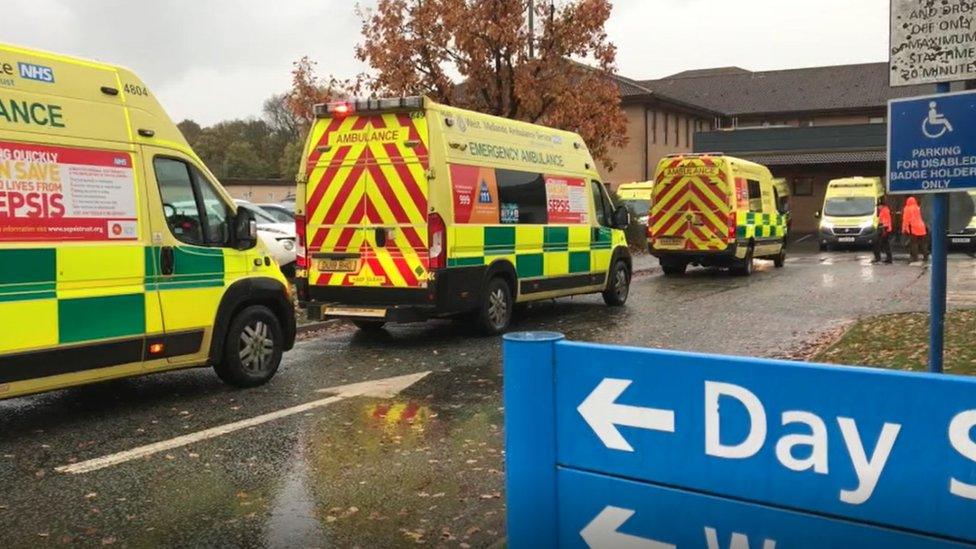
Ambulances are having to wait many hours to discharge patients into hospitals across the West Midlands region
The longest an ambulance had to wait to hand over a patient was 21 hours, at Worcester Royal.
Princess Royal Hospital, in Telford, was 19 hours; Alexandra Hospital, in Redditch, was eight; and the Royal Stoke Hospital was 15.
At the Royal Shrewsbury Hospital, it was more than 20 hours.
Darren Childs, from Ludlow, Shropshire, waited more than 30 minutes in January for an ambulance when his daughter Myla had a seizure.
The target for the average response time on such a serious life or death call is seven minutes.
"I just assumed, like 90% of other people, that when you ring 999 and you call for an ambulance, that within a few minutes that one will be with you," Mr Childs said.
"It was horrendous. It's every parent's worst nightmare."
Thankfully Myla survived and the ambulance service apologised to the family for the delay.
What happened to Mr Childs has driven him to campaign about the issue. He won a seat on his local council, with his manifesto pledge to sort out the ambulance delays.
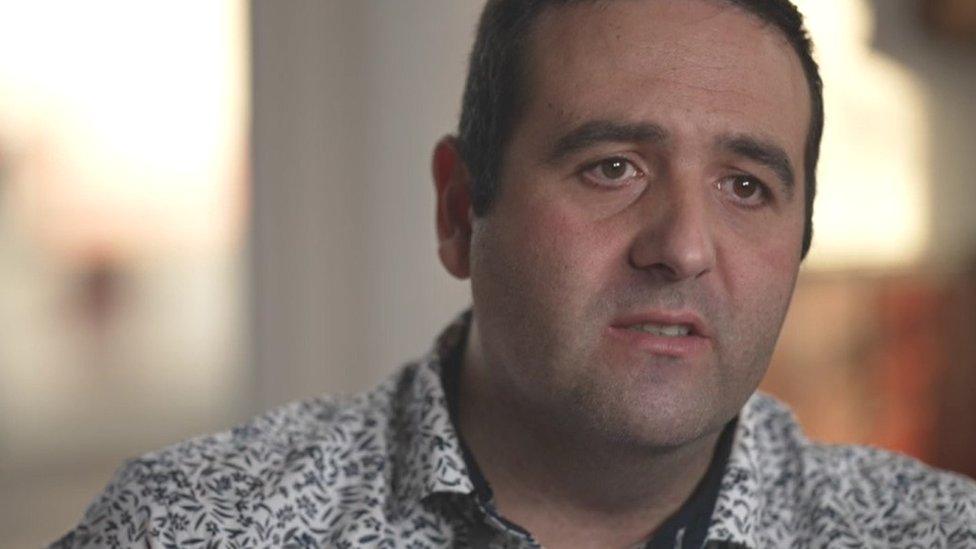
Darren Childs became a local councillor following his family's experience
A spokesperson for the ambulance service said it had seen "a significant increase" in the number of cases which are classed as serious incidents (SIs).
The number in 2022 has risen by more than 400% compared to the same period last year. However, half of them are not directly attributed to delays.
The ambulance trust board meeting in October suggested part of the rise in serious incidents is down to mismanagement of things such as choking and cardiac arrest.
Newsnight was told by a senior ambulance trust insider that actually most of these serious incidents have their root cause in the long delays.
Experienced staff, journalists were told, are getting fed up of hanging around outside hospitals for an entire shift, so they're leaving their jobs. And new recruits are joining in their place,
The ambulance service said: "To suggest that the rise in the number of SIs is due to poor practice from staff would be quite wrong - the vast majority of the rise is as a result of handover delays."
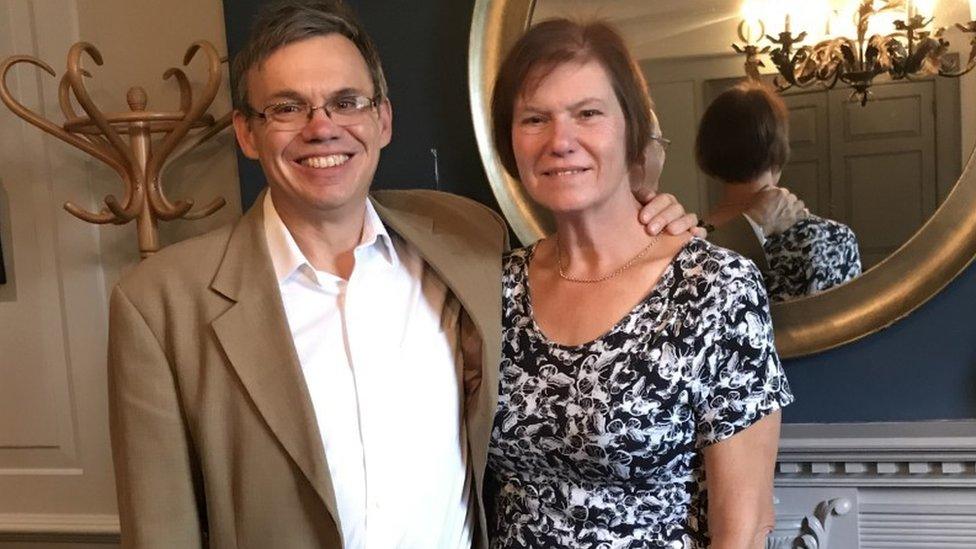
Steve Johnson said his wife Karen was his "everything"
In January 2022, Karen Johnson, who had cancer, collapsed at home.
Her husband Steve said an ambulance had taken about five hours to come, before taking Mrs Johnson to the Royal Shrewsbury Hospital.
Mr Johnson said his wife had been stuck on the ambulance with a paramedic, with no staff member telling people in the hospital she had cancer.
"Nobody flagged up that here is a woman with cancer, potentially terminal, potentially needing treatment.
"She should have been transferred straight away into one of the units... and not to an A&E type situation, that was totally wrong," Mr Johnson said.
'Very, very ill'
Mr Johnson said he and his wife had been told there was no room and they should go home.
When they got to their house, Mrs Johnson collapsed again on the driveway. The couple waited a further five hours for another ambulance, which then took Mrs Johnson to the Princess Royal in Telford, despite the hospital not having the right facilities to treat her illness.
Mr Johnson said the process of going back into A&E and waiting around on trolleys was "inhumane".
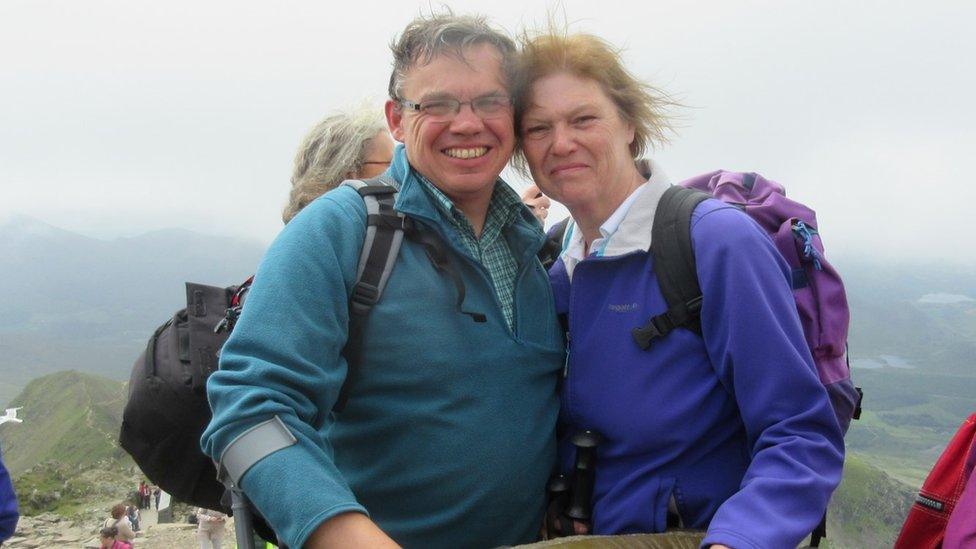
Karen Johnson and her husband Steve, pictured on a walk, received an apology from the ambulance service
"She's not an accident and emergency patient; she is a cancer patient who is very, very ill."
Mrs Johnson died 17 days later.
A West Midlands Ambulance Service spokesman said: "We would like to apologise to Mr Johnson for the delayed response to his wife.
"The whole of the NHS remains under severe pressure and, unfortunately, long hospital handover delays mean some patients are waiting far longer for an ambulance to come to them than we would want."
"You've got people who do care, you've got people who are trying their best but it's the bit that joins it up all together," Mr Johnson said.
The Department of Health in England says it is taking urgent action to support the ambulance service, including offering an extra £500m to speed up hospital discharge and free up beds.
"I think that the NHS isn't just in crisis anymore. I think the NHS is failing and we are losing the NHS," Mr Childs said.
Myla's father added he thought this winter's pressures were "going to be the thing that topples the NHS over".

Follow BBC West Midlands on Facebook, external, Twitter, external and Instagram, external. Send your story ideas to: newsonline.westmidlands@bbc.co.uk, external
- Published5 March 2022
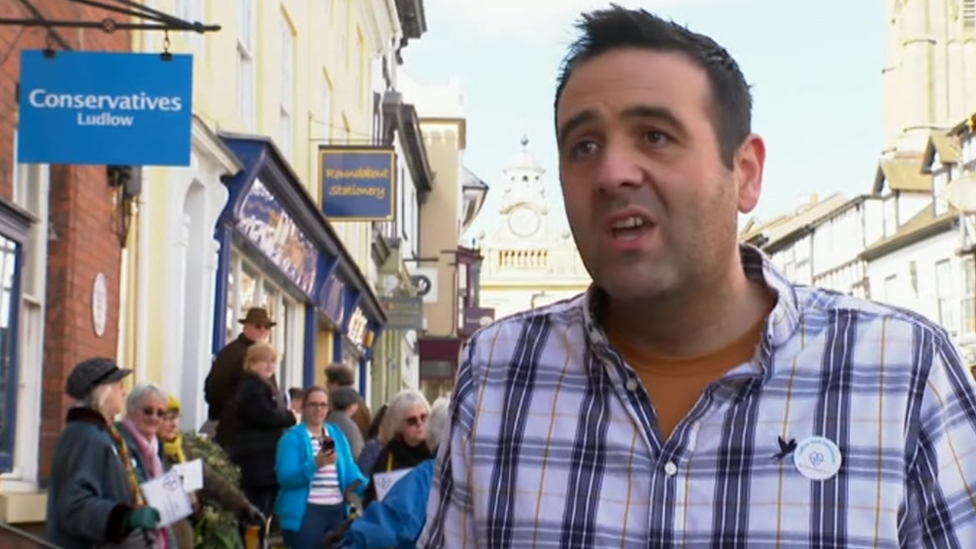
- Published15 July 2022
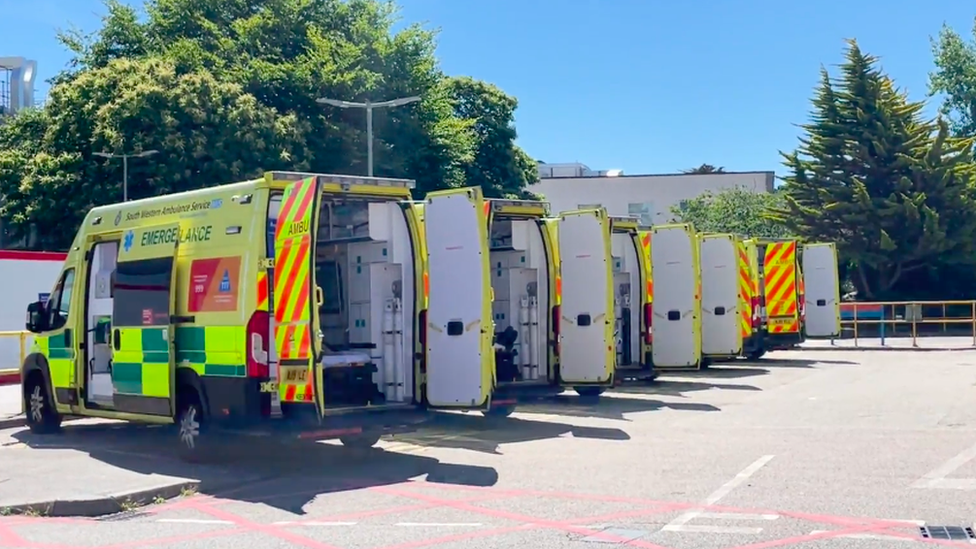
- Published13 October 2022
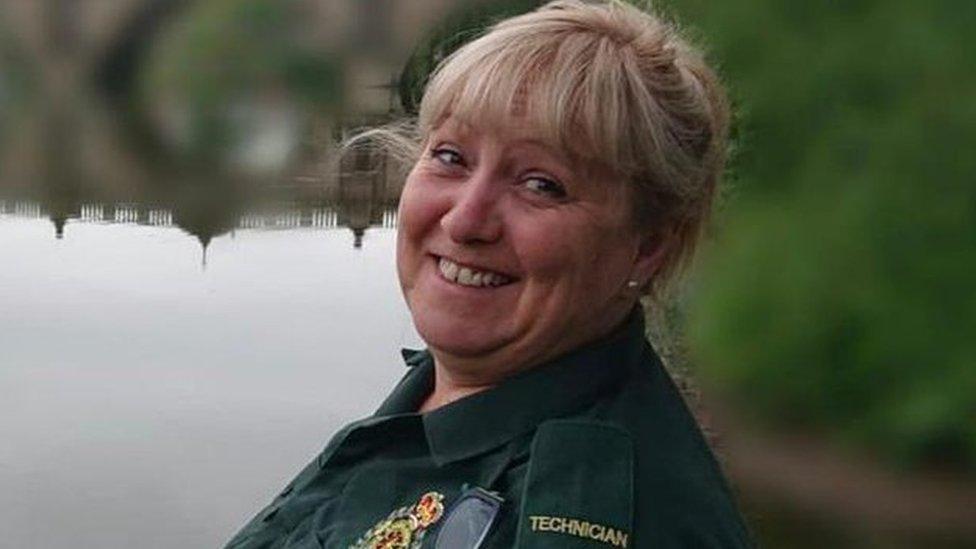
- Published25 November 2022
